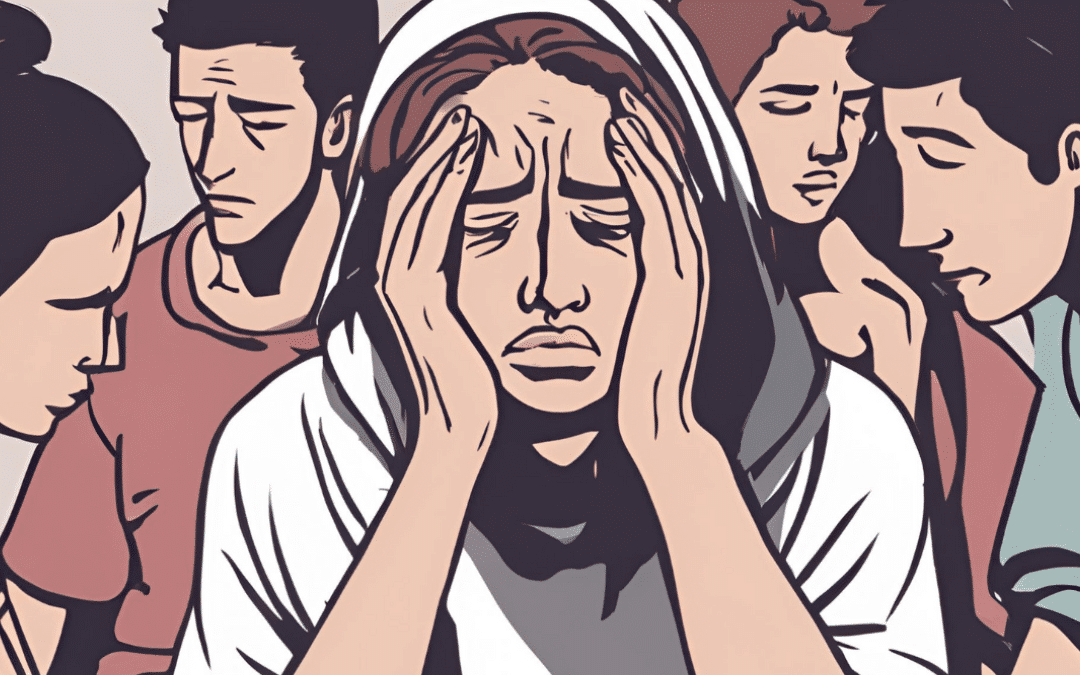Migraine is rarely a solo journey; the condition significantly impacts relationships and family dynamics. This guide explores the vital role of support from family and friends in managing migraine. Learn about the challenges faced by those with migraine in maintaining relationships and how open communication, education, and strategic planning can make a significant difference. Discover practical recommendations for both individuals with migraine and their loved ones to navigate these challenges together, fostering healthier and more supportive relationships.
Managing Together
Support from family and friends is essential in managing migraine. Often, the focus in healthcare is on the migraine patient, overlooking the needs of their support network. However, family and friends also require assistance to effectively support their loved one with migraine. This assistance can involve providing information and education on migraine or helping develop positive communication and strategies for managing pain.
Relationship Challenges
Individuals with migraine often face increased difficulty performing household tasks, attending social events, and maintaining healthy relationships. These challenges can lead to feelings of isolation and distress.
Partners of individuals with migraine may feel the condition strains their relationship, leading to reduced time together, communication challenges, and arguments. This can evoke feelings of sadness, anger, powerlessness, guilt, and concerns about closeness, sexual intimacy, and relationship satisfaction.
Parents with migraine may experience guilt when frequent attacks disrupt family routines, potentially causing them to miss their children’s sporting or school events. Consequently, children may experience frequent changes in their routines and feelings of confusion, anger, or neglect. Additionally, children may feel the impact of migraine issues among their parents and other family members. Many people with migraine express a belief they would be better parents without the condition.
Parents may also experience fear and guilt regarding the genetic component of migraine. When their children also experience migraine, parents naturally desire to alleviate their pain but may feel powerless to do so.
Assessing Migraine’s Impact on Relationships:
Consider these questions to assess the impact of migraine on your relationships:
- Do you feel that your migraine has interfered with your relationship(s)?
- Do you feel that conflict within your relationship(s) may have increased the frequency, intensity, or duration of your migraine attacks?
- Do you find it difficult to communicate about pain with your family/friends?
- Do you feel guilty about the impact of migraine on your family/friends?
If you answered YES to any of these questions, please review the following recommendations. Additionally, consider sharing this section with family members and/or friends.
Migraine & Relationships: Recommendations
Managing Pain
For Individuals with Migraine:
- Avoid keeping silent about your pain, as it can lead to miscommunication and assumptions.
- Find effective ways to communicate about your migraine pain with family/friends.
- Ask your family/friends how you can provide updates on your pain and share information about your needs.
- Consider providing information about your pain along with your specific needs from others, offering examples to help them understand how they can support you, such as suggesting activities to do together or requesting assistance with tasks. For example, “My migraine pain has been an 8/10 all day, and I have been having difficulty doing things at home. Could you please order pizza and help Sarah with her homework?”
For Family Members and Friends:
- Refrain from making assumptions about the needs of the person experiencing migraine pain. Ask them directly how you can help or what they need when they are in pain.
- Recognize that migraine pain may not always be visible, leading to frustration or isolation.
- Inquire about their pain levels if uncertain but be mindful that some individuals may prefer not to discuss it daily. Discuss with them how best to approach this topic.
Handling Blame
-
-
- Acknowledge that emotions like anger, fear, and frustration may arise when dealing with migraine disorder.
- Recognize that placing blame on oneself or others is not constructive and can exacerbate conflict and stress, potentially worsening migraine.
- Understand that migraine is not caused by individuals’ behaviours or actions; there is a genetic component that cannot be predetermined or altered.
- Avoid blaming yourself for individual migraine attacks, as triggers may be beyond your control.
- Shift your perspective to view migraine as a challenge to be managed collectively. Encourage everyone involved to work together to find effective strategies for controlling and managing migraine symptoms.
-
Planning Ahead
To effectively manage migraine, proactive preparation is crucial. Migraine attacks often occur unpredictably in terms of their frequency, severity, and duration. Establishing a comprehensive Migraine Preparedness Plan can help alleviate the anticipatory anxiety associated with these uncertainties.
- Maintain a supply of pre-made frozen dinners, leftovers, or contact information for favourite take-out restaurants to have convenient meal options during migraine attacks.
- Compile a list of current medications, physician names, and contact numbers to have readily available in case of emergency.
- Diversify your support network to avoid relying solely on one person for assistance. Consider involving individuals who can help with various tasks such as carpooling, running errands, or providing support at home.
- Write down scheduled responsibilities and commitments in advance to facilitate delegation during severe migraine attacks. This preparation ensures a smooth transition for others to assist you when needed.
Supporting Healthy Lifestyles
For Individuals with Migraine:
- Educate your support system about the triggers you are attempting to avoid and how they can assist you.
- Share any new skills or strategies you are learning for managing migraine with family and friends. For example, encourage everyone to practice diaphragmatic breathing, as it can benefit all individuals.
For Family Members and Friends:
- Support healthy lifestyle choices that can help manage migraine, such as promoting consistent sleep patterns, regular exercise, relaxation techniques, and dietary modifications.
- Participate in these healthy habits alongside the individual with migraine to provide additional encouragement and reinforcement.



